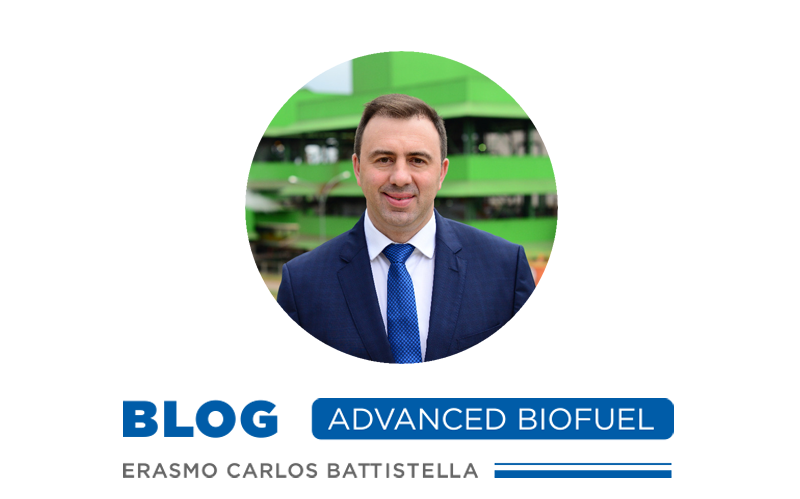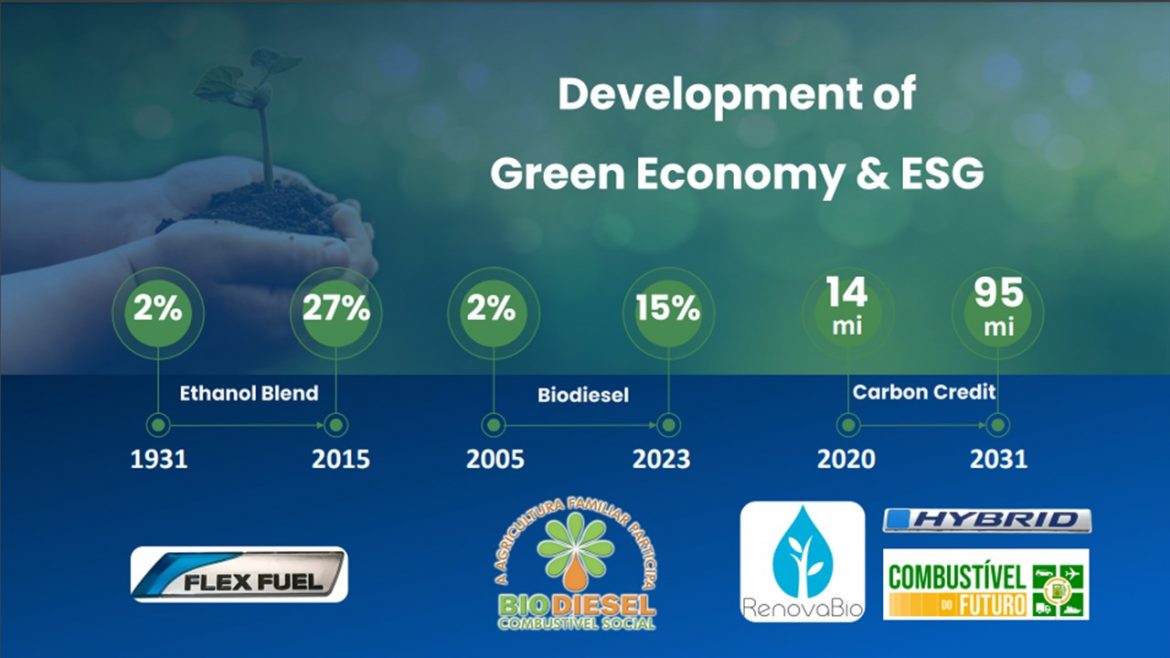I followed from Scotland the announcement by the Brazilian Minister of the Environment, Joaquim Leite, in his first official participation at the United Nations Climate Change Conference 2021 (COP26), that Brazil will increase its target of reducing greenhouse gas emissions (GHGs) from 43% to 50% by 2030.
This new commitment is a signal from the federal government that focuses on the new green economy with the strengthening of biofuel consumption – a reference in decarbonization in transportation -, through the National Policy for Biofuels (RenovaBio), which establishes in law the progression of the mixture up to 15% (B15) in 2023.
It also strengthens the approval of Bill 528/2020, which extends the schedule for advancing the biodiesel mixture to reach B20 as of 2028, and for the approval of Bill 1873/2021, which establishes the National Program for Advanced Renewable Fuels, HVO (green diesel) and SPK or SAF (aviation biokerosene).
RenovaBio is a State Policy that recognizes the strategic role of all biofuels in the Brazilian energy matrix to promote energy security, market predictability and mitigation of greenhouse gas emissions in the fuel sector.
Biofuels represent a clean energy offer, increasingly more sustainable, competitive and safe.
The minister made a point of highlighting, among the country’s competitive advantages in environmental issues, the fact that Brazil has the largest operational large-scale biofuels program in the world, a highly clean energy matrix, low carbon farming practices – with an increasing role for technologies developed to fix carbon in the soil.
These are also the basis of the new Green Growth Programme announced by the Brazilian government, which goes beyond emission reductions, seeking to encourage forest conservation and the rational use of natural resources, with the generation of employment and income.
Biofuels combine sustainable development, economic growth and green jobs. This formula is already a reality and I am reinforcing this Brazilian heritage at COP26 to support projects for the reduction of greenhouse gas emissions (GHG).
On November 3, at 11 a.m. (local time), I will have the honor of speaking on biofuels at the Brazil Pavilion at COP26, particularly on biodiesel and the advanced second wave.

